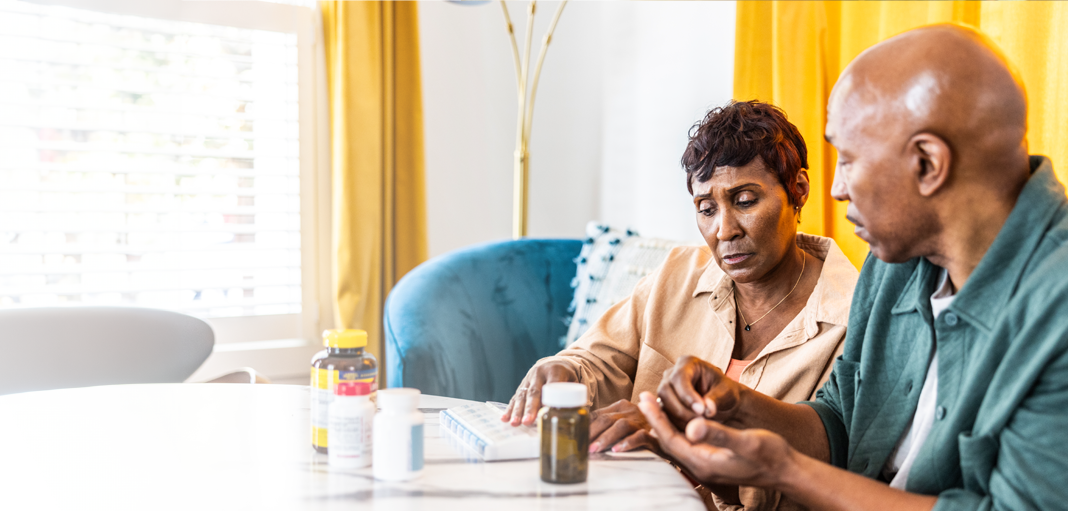Enroll with us in a few easy steps
Emergency Preparedness
The fact is emergencies can happen anywhere and anytime. It’s important to plan ahead and be prepared for anything. Here are a few points to think about as you make an emergency plan that can help you cope with an emergency and make sure your medical needs are met.
Think about emergencies you might be at risk for. This can include disasters like hurricanes, tornadoes, floods, fires, severe winter weather, losing power, or your car breaking down.
In case an emergency happens, it’s important to:
- Decide on escape routes
- Have an evacuation plan
- Gather health information and items you will likely need that can be stored and ready to go in case of emergency. One idea is to make a folder or binder that contains, for example:
- Your diagnosis
- A list of your medications and supplies
- Doses
- Reasons for taking
- Name and phone number of prescribing doctor
- Supply inventory available
- Storage and refrigeration requirements (if needed)
- Your emergency contact list – names and phone numbers
- Friends and family
- Your pharmacy (local, mail order, and specialty pharmacies)
- Your doctor
- Your blood type
- Any allergies you may have
- Notes about any difficulties you may have, for example walking, hearing, your vision, etc.
- A picture of your medical alert bracelet or necklace
- Health insurance information
- Make a supply kit
- Some supplies you may need for your medication, equipment, catheter care, etc.
- Water (one gallon a day per person is recommended)
- Non-perishable food to last for several days (e.g., infant formula)
- Cooler for medication storage and transportation if needed
- Other supplies like a flashlight, batteries, first-aid kit, crank or battery- powered radio, plastic sheeting, blankets, face masks, gloves, toilet paper, change of clothing, blankets or sleeping bag for each person, hand sanitizer, personal hygiene items, phone charger
Be proactive about utilities.
Let your utility companies know that power is necessary for your health and life. Include a letter from your doctor, on your doctor’s stationery, that explains your medical needs and why you need to have power for your equipment. It should include:
- Name and address of person with specific medical needs
- Type of illness and therapy needs
- Doctor’s registration number (NPI)
- Doctor’s signature
An affirmation stating that your medical needs require that you have utilities
If you have a loss of power or water, make sure you have a generator or enough battery back-up for pumps.
We’re here to help.
Your CVS Specialty CareTeam is available to answer your questions, help with medication side effects, and provide you with the information you need. If you have questions or want to learn more, talk to your doctor or chat live with the CVS Specialty CareTeam. Just sign in on CVSSpecialty.com and look for the red chat icon on the bottom right side of the page. Or visit our Contact Us page for more information.
This information is not a substitute for medical advice or treatment. Talk to your doctor or health care provider about your medical condition and prior to starting any new treatment. CVS Specialty assumes no liability whatsoever for the information provided or for any diagnosis or treatment made as a result.
CVS Specialty® and Coram® CVS Specialty Infusion Services (Coram) work together to dispense and administer Ig therapy to patients. Learn more about how Coram is keeping you safe and healthy at home during infusion treatments.

